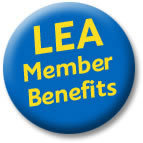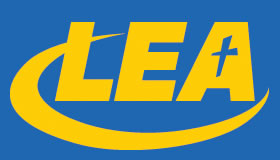

How Flexible is Your Early Childhood Program?
Of course parents want their young children to be in a safe, nurturing environment for early childhood classes. They are thrilled that their little ones will be taught how much Jesus loves them, how to get along with others, and get a head start on painting, numbers, and letters.
“We can accept far more families to our program, and our classes and days are much fuller. Parents have choices on when their child is in school, and the program is thriving.”But do you know what parents also want? They want to be able to have choices when it comes to early childhood. These parents may have other children, they might work part-time, maybe they are caretakers for an aging parent, or perhaps they just like to have options.
Whatever the reason(s), parents want more flexibility for their younger children, and a growing number of Lutheran ECE programs are finding that being more flexible is good for the student, good for the parent, and can potentially increase funding for the program.
Families are changing and so are their needs. Depending on your specific community and demographics, your Lutheran school may need to consider a shift in options. What do Lutheran Early Childhood programs offer in terms of flexible schedules?
Here are some examples from Grace Lutheran, Modesto, California:
- Offers a morning program (8:30-11:30)
- Half-day program (any time after 6:30 until 12:45)
- Full-day option (6:30-6:00)
- Parents can sign up for 2,3, 4 or 5 days a week. Generally the program prefers at least two days for the consistency of the child, and parents have to sign up for the same days each week (otherwise the program isn’t as fundable).
- Parents are offered a holiday credit for days that the school is closed. This change helped in the program getting more Monday students because now the parents don’t pay for the holidays.
You might also want to consider:
- Use a weekly billing calculation instead of monthly.
- Give parents who request the most time priority in scheduling.
- Offer something special on low enrollment days like Monday and Friday such as Art, Music, or Spanish.
“We can accept far more families to our program, and our classes and days are much fuller. Parents have choices on when their child is in school, and the program is thriving,” says Heidi de la Motte, School Administrator at Grace Lutheran, Modesto, California.

 If you are thinking about offering flexible scheduling, consider that:
If you are thinking about offering flexible scheduling, consider that:
- Your staff must be excellent and flexible. They must understand the importance of building a relationship with the family. Will additional staff be needed? Will current staff members take on the extra hours? Are they interested in working the extra hours?
- Your facility needs may change. If there are children present more days or longer hours, it can have an effect on other areas. Are proper rooms available? Do you have adequate materials and supplies?
- For those free-standing Early Childhood centers – will state licensing be affected? Will it now be needed? ECE programs that are connected to an elementary school are often license-exempt. Will any of this change with additional options? Check your state for specific requirements.
Advantages of Flexible Scheduling
- Increased enrollment – often with families you may never have had the opportunity to minister to.
- If you have an elementary school, you will reach more families to potentially matriculate.
- Teachers like having more time with the children – more time to accomplish goals and learning objectives.
- Increased tuition dollars to help school finances.
- People in the congregation see more children when they stop by during the day. This helps everyone realize that ministry occurs throughout the week in the building.
- Because children can be present full time, they are likely to build strong relationships with other families and remain in the school.
- Older siblings of students may enroll in your elementary school.
- More favorable view from the community. You will be seen as a place that works with families. Families and children feel safe with you.
Cautions about offering Flexible Scheduling:
- Parents who want to take advantage of your flexible schedule. Don’t let them rule the program. Have a variety of options, but stick to those options. Don’t let parents dictate your schedule.
- Talk about your program as a full-time program with part-time options, not as a program that offers the Burger King mentality of “have it your way.”
- Budgeting. Transitioning to a flexible schedule makes a new budget necessary. There will be more income, but also more expenses. Some will see the extra dollars coming in…and that’s all. But that’s not the whole story. We are not in the business to make money. Communicating this to congregational lay leaders can be challenging.
- Make sure that those in charge of the facility know what is expected. More children present for longer hours means more cleaning and upkeep. Parents still expect a nice, clean facility.
“Lutheran schools exist to share the Gospel. At the end of the day, we are reaching more families for Christ,” says Drew Gerdes, Early Childhood Director and Preschool Teacher at Springfield/Redeemer Lutheran School, Springfield, Missouri. “That is the real advantage of flexible scheduling.”
Thanks to Drew Gerdes, Early Childhood Director and Preschool Teacher, Springfield/Redeemer Lutheran School, Springfield, Missouri and Heidi de la Motte, School Administrator, Grace Lutheran School, Modesto, California.
Photos © iStockphoto/Petro Korchmar, jo unruh, kate_sept2004







